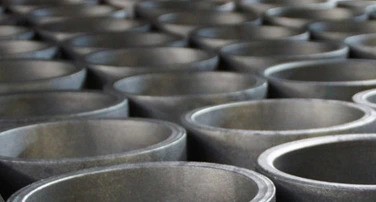Tel: 0129-4001010 Phone: +91 730 321 5033
Email: cs@absoluteveritas.com
BIS CERTIFICATION FOR STEEL FOR HARDENING AND TEMPERING IS 5517:1993
In today's competitive landscape, maintaining market presence without a certified, high-quality product can be challenging. Obtaining a BIS license may also be essential for selling products in the Indian market. To achieve BIS certification and ensure product quality, manufacturers must adhere to the specified Indian standards.
Let's delve deeper into at IS 5517:1993 for steels for hardening and tempering.
This standard outlines the technical and delivery specifications for wrought alloyed and unalloyed steels, available in various forms such as bars, rods, flats, plates, and forgings. These materials are designed to be used in hardened and tempered conditions. Typically, the steel specified in this standard is intended for the forging and machining of parts used in engineering or automotive applications.
IS 8910:1978 outlines the general requirements for material supply. Steels falling under this standard must be ordered and supplied based on any of the criteria listed in table 1 of the standard.
Unless specified otherwise in the order, the methods employed in manufacturing the steel and the product are at the manufacturer's discretion, with the condition that the steel must be fully killed. Adequate reduction and discarding must be conducted, as determined by macroetching and ultrasonic testing, to ensure the absence of piping, detrimental segregation, and similar issues. The material should be devoid of surface and material defects that could compromise its intended application.
TESTS
The subsequent test must be conducted for Steel for Hardening and Tempering.
-
Chemical analysis
-
Hardness
-
Mechanical properties
-
Grain size
-
Hardenability
-
Dimensional & tolerances
-
Additional tests
MARKING:
Bars with a diameter of 50 mm or equivalent section and larger should be stamped or appropriately marked at the end with the heat number and the manufacturer's name or trademark. For bars in smaller sections, they will be grouped into suitable bundles and tagged with metal tags containing the necessary information. Additionally, the Standard Mark (ISI Mark) can be applied to the material.
Manufacturers are required to secure a BIS license from the Bureau of Indian Standards in order to utilize the standard mark (ISI Mark). This license is granted after a thorough evaluation of manufacturing infrastructure, production processes, and quality control and testing capabilities during an inspection at the manufacturing premises by the Bureau.
PROCESS FOR BIS ISI MARK CERTIFICATION

BIS CERTIFICATION PROCESS
Acquiring a BIS license requires a comprehensive review of manufacturing infrastructure, quality control abilities, testing resources, and production procedures. This thorough assessment guarantees that products not only adhere to regulations but also prioritize consumer safety and reliability.
NOTE:
For comprehensive guidance on the BIS ISI Certification process, please explore:
WHY USE ABSOLUTE VERITAS?
Absolute Veritas is a prominent organisation from the private sector of India primarily dealing with the Inspection, Testing, Audits, Certification of products& consulting services to various industries in India and worldwide, ensuring compliance with regulatory standards and industry requirements. Offering a comprehensive range of services including product certification, testing, training, auditing, and compliance services, Absolute Veritas helps manufacturers and importers achieve higher production efficiency and quality standards.
Absolute Veritas (AV) will handle end to end pre-registration request, sample preparation, documentation, testing and application process for FMCS Certification
For any questions regarding the most recent update on FMCS registration licenses, please reach out to us via email at cs@absoluteveritas.com



